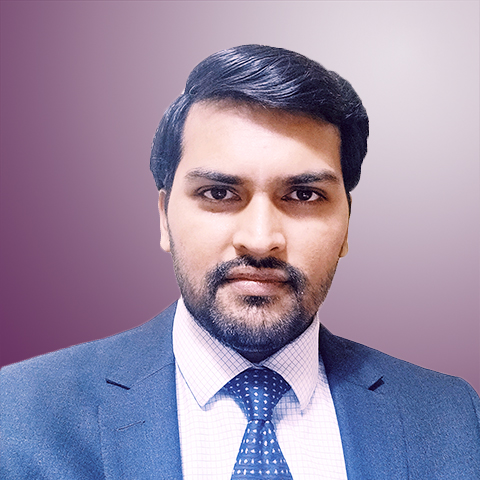This Interview has been published by Pragya Chandni and The SuperLawyer Team

Can you share with us what inspired you to pursue a career in law, particularly in the field of dispute resolution and arbitration?
Funnily enough, I would have to say that my entry into the law school and eventually into the legal profession was not all planned and happened by accident. I was initially a Zoology (Hons.) student at North Campus, Delhi University, where through the internet, peers, and friends, I found out about the various national law schools in India. I was instantly intrigued; decided to leave zoology behind; and apply to law schools. It was at NLIU Bhopal, that I realised the emancipatory potential of law; my inclination and ability towards analytical thinking and its capability of a positive impact on society and human civilization at large. Further, during the 5 years I spent at Bhopal as well as the various internships I completed during that period, I realised and accordingly decided that dispute resolution would be the practice area for me.
I started my journey as a lawyer in 2011, upon graduating from NLIU, Bhopal and joining the disputes practice of Amarchand & Mangaldas & Suresh A. Shroff & Co. (AMSS), at its Mumbai Office. I thereafter shifted my base to Delhi in 2016, and presently, I am a Partner at Cyril Amarchand Mangaldas, at its Delhi, NCR Office.
Now, 13 years later, I am a qualified Advocate-on-Record and endeavouring to build and develop a practice in advising and representing both Indian and foreign clients in a diverse spectrum of areas under the disputes and arbitration umbrella.
You have a specialization in various areas such as complex, civil and commercial disputes; contractual disputes; securities laws; white-collar crimes; and environmental matters. What drew you or motivated you to pursue such diverse practice areas within dispute resolution?
The preference for a super specialised practice versus a more general one, of course, differs from practitioner to practitioner. However, for me, personally, having a more holistic and well-rounded practice and knowledge in the age of specialisation, is definitely an important arrow in my quiver. I would credit my early curiosity to learn and explore more than one area of a law, as well as the various opportunities which my firm has provided me – as equipping me to effectively advise and represent clients in a diverse variety of matters.
As a gold-medalist graduate from NLIU, Bhopal, what pivotal moments during your education shaped your interest in dispute resolution and arbitration?
Numerous peers, professors and mentors and my experiences have shaped the interest I have and which I continue to learn on a daily basis in dispute resolution and arbitration. I would have to give due credit to my colleagues at my firm, college seniors, who were already placed in various law firms and who regularly advised me on various aspects of practice; my professors, who were instrumental in developing my keen interest in disputes; the various internships and clinical courses I completed which helped create a sound foundation of procedural and substantive law and of course, the people around, who constantly reinforced my desire and determination to use my legal knowledge to help people, create a more aware surrounding, and whatever I can contribute towards building a just world, the best I can.
Could you discuss some of the key matters you’ve worked on, such as advising and representing premier associations, international publications, and major infrastructure projects? How have these experiences influenced your approach to dispute resolution?
During my time at Cyril Amarchand Mangaldas, I have been fortunate enough to work on a variety of high profile and very interesting matters. Whilst it may not be advisable to get into specifics, I have advised big conglomerates, reputed developers and builders, cricket bodies, tech companies etc. I have recently advised and represented a premier association of private sugar mills, on inter alia challenging the implementation of a state policy by way of writ proceedings instituted before the High Court of Allahabad. I have also advised and represented a highly reputed international magazine and multi-platform publication, in a civil defamation suit in Delhi; a major tea estate before the Madras High Court as well as the Supreme Court of India; a leading steel plant in various critical matters before the National Green Tribunal, Principal Bench; as well as the court appointed Administrator of a club/association before the Supreme Court, High Court, NCLAT and NCLT – amongst many other varied cases.
These matters, like all my others, greatly influence my approach to dispute resolution. They reinforce what I believe is a prerequisite to any matter being effectively handled – first, very frankly evaluating the needs and requirements of my client in a solution-oriented approach, and then dynamically exploring the strengths and weaknesses of their case, i.e., whether they would benefit from alternate dispute resolution methods, if at all, etc. I have found that this enables me to best, realistically advise my clients and have their expectations managed from the get-go. In my view, it is very important to have a long-term vision and to have a solution based and practical approach.
As an Advocate-on-Record, Supreme Court of India, what unique challenges and opportunities do you encounter while representing clients in the highest court of the country?
I believe an AOR has to be cognisant of the immense responsibility that accompanies its title. Having the right to file pleadings before the Hon’ble Supreme Court of India, an AOR is an integral connecting tissue between the aggrieved party, the arguing counsel and the highest court of the land. Almost on a fortnightly basis, one hears of directives and observations passed by the SC that an AOR cannot merely be a signing authority and file meritless or frivolous petitions. Thus, being an AOR is a balancing act between the needs of the client and the responsibility towards the court, which must be exercised responsibly. It is in fact a privilege.
In your opinion, what are some of the critical skills and qualities necessary for a successful career in dispute resolution and arbitration, especially when handling complex cases involving multiple jurisdictions and legal nuances?
Good question. In my opinion, the first critical quality that is necessary for a successful career as a dispute resolution practitioner is hard-work, hard-work, and hard-work! It is also imperative that no matter how many years of practice have gone by, as a lawyer, one must stay abreast of developments in the legal arena and open to new and challenging ideas. This will greatly facilitate one’s capability to strategize and effectively advise the client. It is also important that one is aware of the changing needs and aspirations of the people of India, the corporate world and the nation as a whole – it will only help in molding one into a lawyer for today and for tomorrow. It is of course also important to have basic ideas about other jurisdictions and build good and reliable contacts with lawyers and experts in varied jurisdictions. The ability to learn fast and on the go is also very critical.
Always remember that dedicated hard-work, perseverance, and good relationships will never steer you astray!
Lastly, what advice would you offer to recent law graduates aspiring to excel in the field of dispute resolution and arbitration, based on your years of experience and expertise?
Borrowing, from what I have said above, broadly I would like to synthesise my advice to law students/recent graduates as follows:
- Sustained hard work and regular reading are your most powerful allies, whether you are a fresh entrant into the practice or a seasoned veteran. It is important to carve out the time to stay updated, accordingly.
- Stay in touch with your alumni; your mentors; and your peers and seniors at your internships – those who are already practising and take ‘on ground’ practical advice from them.
- Further, do not dismiss procedural aspects or courses to the peripheries of your studies. Knowing the ins and outs of CPC is just as important as Constitutional Law or Contracts Law, if not more. Having sound procedural knowledge is vital and will provide for an excellent base/first principles knowledge, when practicing.
Get in touch with Vikash Kumar Jha-























